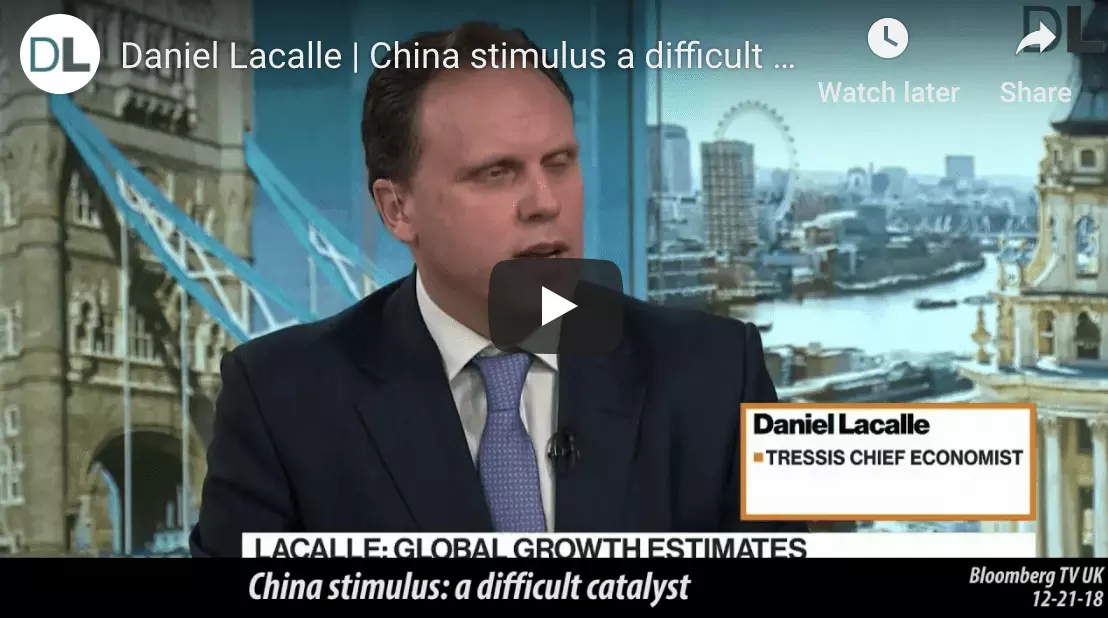China presents many similarities in its economic model with the central-planned economies of the 70s: Massive debt, overcapacity and central planned growth targets.
Many economists and investors feel relieved because China is still growing at 6.3%. They should think twice. On one side, that level of growth is clearly overestimated. By any realistic measure of growth, China’s Gross Domestic Product annual increase is significantly lower than the official figures show. Patrick Artus, global chief economist at Natixis Global Asset Management, as well as other economists have noted that there has been a significant decoupling since mid-2014 between the government’s official growth reading and more reliable indicators. On the other hand, even if we agree with the official readings, this growth has been achieved using a worryingly high level of debt.
Chinese growth of 6.3% per annum came with more than 9% annual growth in money supply.

Total debt has quadrupled since the financial crisis, and official messages of “measures to curb indebtedness” have shown a different reality. The IMF estimates debt as a proportion of Gross Domestic Product may rise from 235% to almost 300% by 2022.
This increase in debt would not be a concern if it yielded solid economic returns, but the latest figures show that more than 40%of the Hang Seng Index components are adding debt to repay interests, and China needs now four times more debt to generate the same growth as in 2007.
Overcapacity has soared, and industries face the impossible task of keeping capacity and jobs as well as deleveraging. And exporting its way out of overcapacity is not easy.
In 1992, only two G20 countries had China as one of their top five export destinations, now there are fifteen. However, in 1992 China had a productive capacity deficit, now it has 60% overcapacity, and – as it cannot destroy that excess in a centralized planned economy – it
intends to export it. But this is almost impossible to achieve when excess capacity is an endemic problem all over the world.
It is true that Chinese imbalances are mostly local-currency denominated, that household savings rate is healthy and that the high productivity sectors are doing well, but that was the case with Japan in the late 80s as well. And none of these factors offset the large risks created by the housing bubble and excess debt taken by state-owned conglomerates and private businesses.
These risks are highly disinflationary and are likely going to impact long-term growth and inflation expectations globally. As China tries to export its way out of the bubble, the impact on prices and trade all over the world should not be underestimated. We should not ignore the financial risks either. Although China’s financial concerns are mostly concentrated in its own system and currency, this does not mean that worldwide spill-over effects can be ruled out.
China is a big risk, and the best outcome for all the world economies is that the government forgets impossible growth targets and focuses on reducing the rising financial imbalances. All of us will prefer a modest Chinese growth-rate rather than an inevitable crisis.




Leave your comments
Post comment as a guest